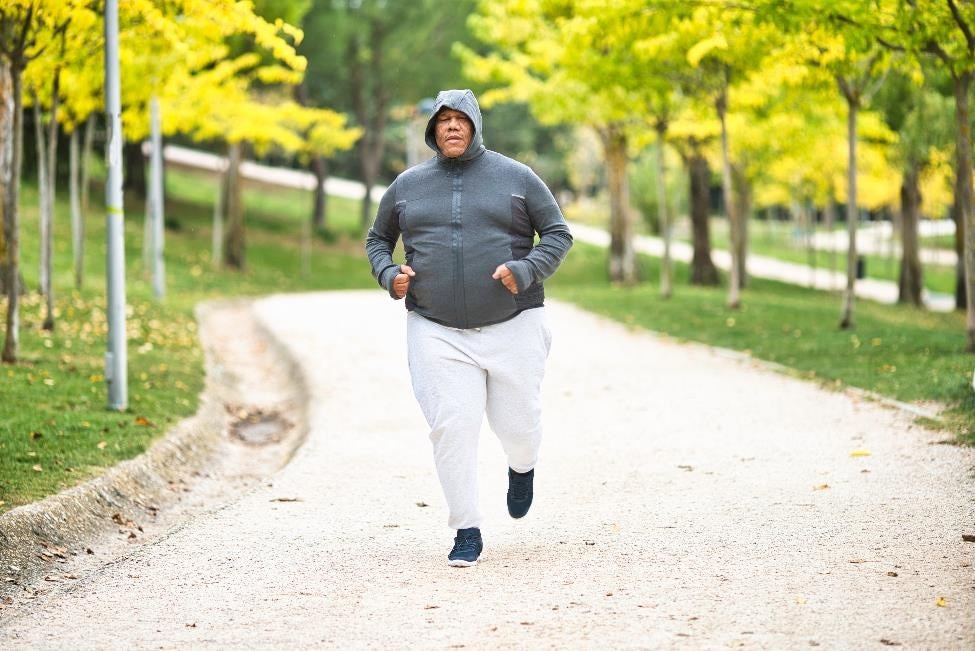In this post we discuss why you shouldn’t use exercise to lose weight and what can sometimes happen if you do.

At a glance
• Weight loss = reducing body fat, which requires a calorie deficit.
• Using exercise to burn calories creates an unhealthy relationship with training, leading to burnout and injury.
• Sudden increases in training to “offset” food intake raise injury risk.
• You can’t out-train a poor diet: calorie-dense fast food requires unsustainable activity levels to balance.
• Exercise contributes only a small fraction (10–30%) of total calorie use; most energy supports basic body functions.
• The body adapts to aerobic exercise, reducing calorie burn over time.
• Nutrition, not exercise, is the key driver for weight loss; exercise is more effective for health, strength, and weight maintenance.
• Best approach: focus on improving nutrition for fat loss, and treat exercise as a separate process for overall health.
Introduction
Whilst it might be a little counterintuitive, it’s important to detach exercise from the process of losing weight.
When we talk about weight loss we usually mean reducing body fat. To do that we need to create a calorie deficit. In other words, a difference between the calories we eat and the calories we use for energy.
Naturally the temptation is to increase the calorie expenditure side of the equation.
Of course that seems very sensible but here’s the danger: by doing this you can create a relationship with exercise merely as a tool to output calories.
Further down the road this has the potential to create issues. Not only does it suck the joy out of exercise, it can also lead to injury.
Exercising to burn calories leads to burn out
Viewing exercise as a method of burning calories will almost inevitably lead to poor training decisions.
You won’t make choices based on what your body needs, but rather a desire for each workout to be as strenuous as possible.
Your exercise programme is now at the whim of your calorie intake. What if during the holidays you eat more food than usual, does that mean your exercise now has to increase dramatically?
We know sudden increases in either training volume or training intensity can lead to injury.
You can’t out-train a bad diet
If your diet contains more than a little fast food, you’ve set yourself a mountain to climb. Literally and metaphorically.
Fast food is so calorie dense that most people would need to increase their activity to the level of a professional athlete to make a dent in it.
The average meal from McDonalds takes around 4 hours of walking or 1 hour of running to burn off.
The majority of us have neither the time or the physical structure to support that level of activity on a regular basis. And if you were eating a fast food diet, you wouldn’t have the nutrients to support it either.
It’s more complicated than calories in versus calories out
Perhaps the most convincing argument for not using exercise to lose weight is that it doesn’t seem to work.
Whilst we may think the equation of energy in versus energy out is a simple one, it isn’t. Only 10-30% of the calories we ingest are available for exercise. The vast majority (60-80%) go towards maintaining the basic functioning of our bodies at rest.
That means exercise will only have a minor influence on our total calorie burn anyway.
On top of that, aerobic exercise in particular causes adaptations that make our bodies more efficient. The amount of calories you burn on your first run is liable to reduce as you get better at running. This can lead to ever increasing activity levels and further stress on your body.
Nutrition and exercise are not equally important for weight loss
The bigger issue here is that both public health organisations and the fitness industry have been guilty of perpetuating the myth that nutrition and exercise are of equal importance in the quest to lose weight. The evidence is overwhelming, they’re not.
Whilst studies show exercise can help you maintain a certain weight, the most effective way to lose weight is to get your nutrition right. In most cases, this will mean consuming fewer calories by making better food choices.
Summary
Exercise can do many wonderful things for you, helping you lose weight by burning more calories isn’t one of them.
Focus on your nutrition instead and view exercise as an entirely different process.
Detaching the two will lead to better results and improved health in the long term.
Spot on Paul. So spot on.
My own experience supports exactly what you are saying.
Very good article,